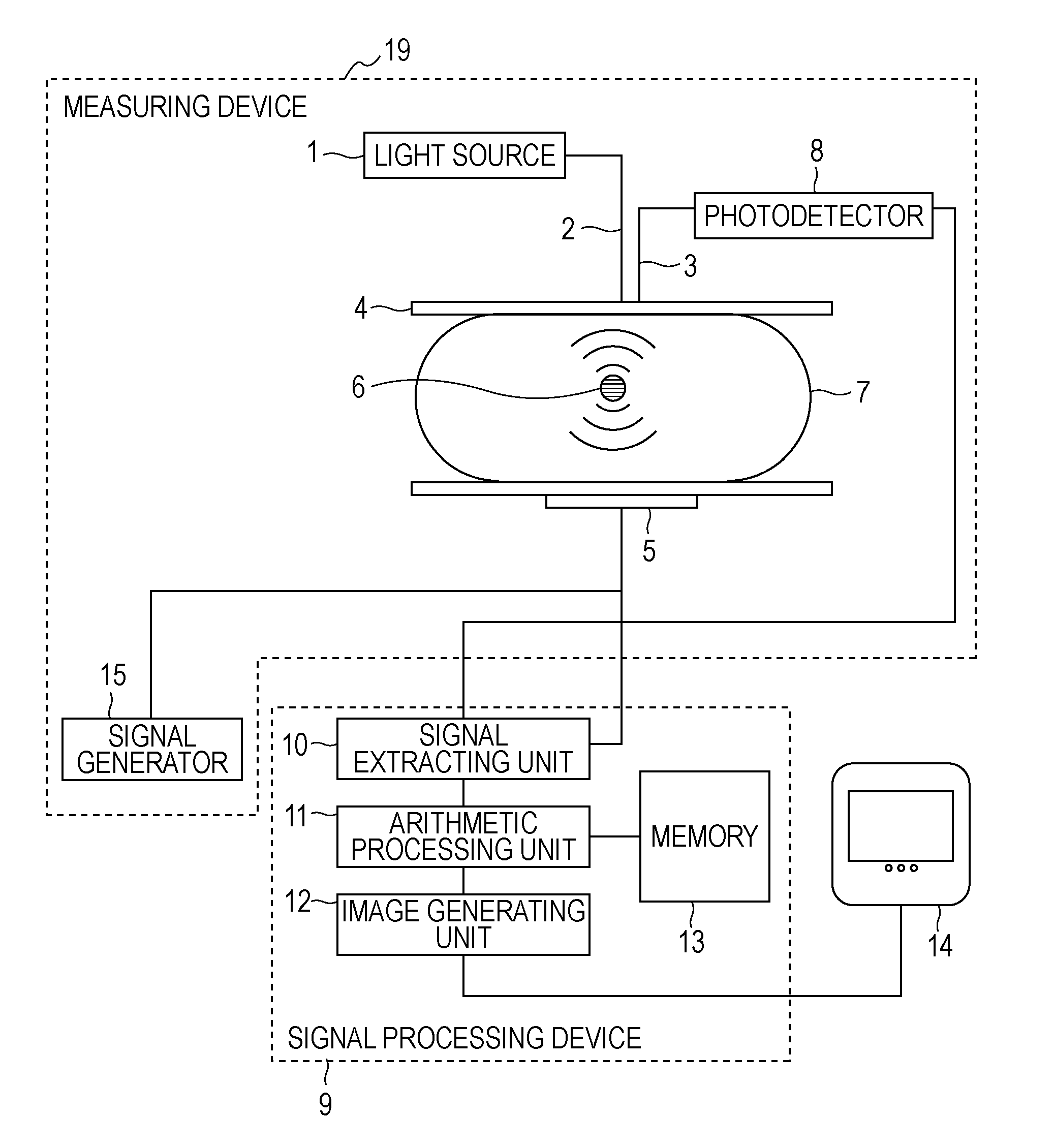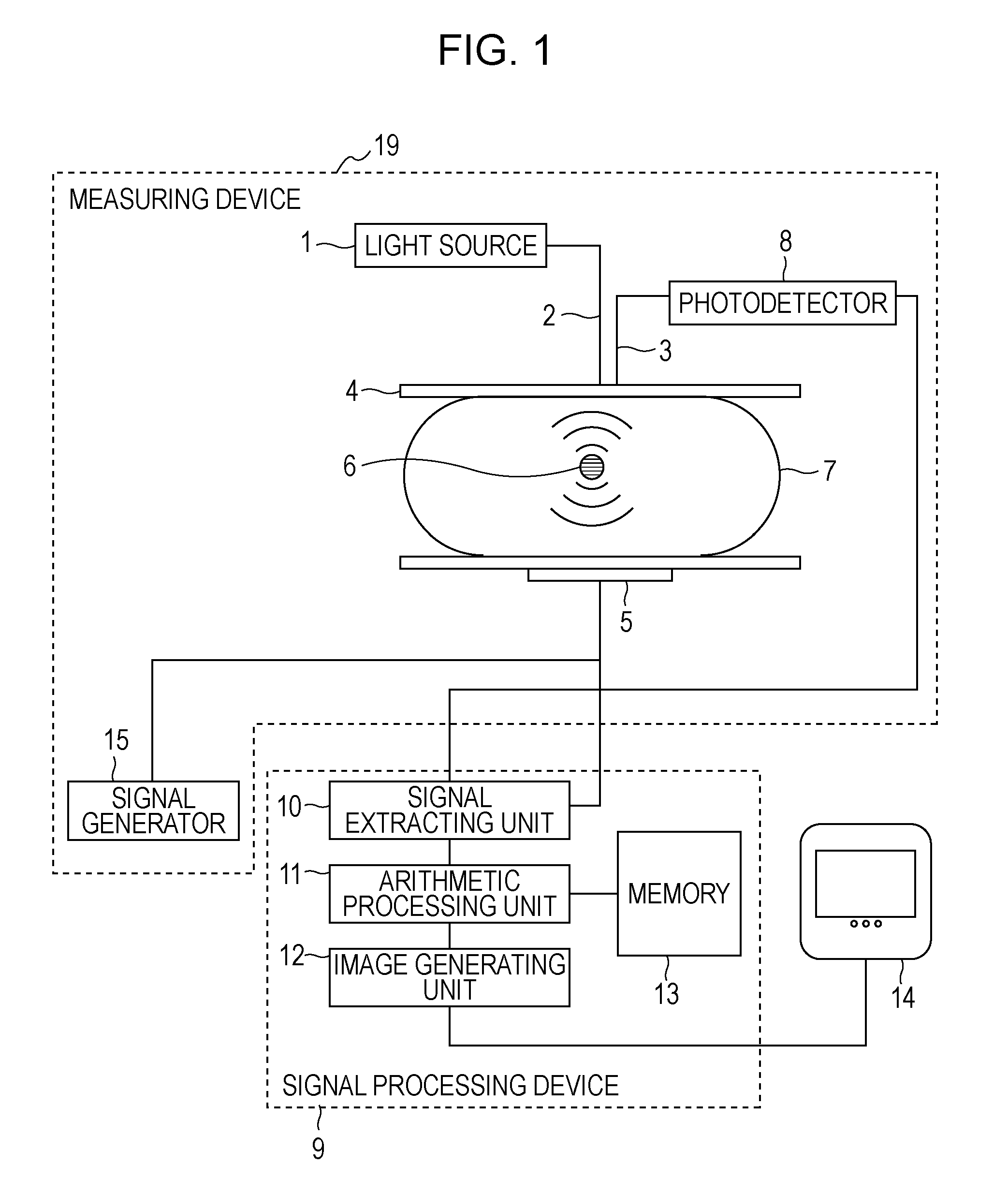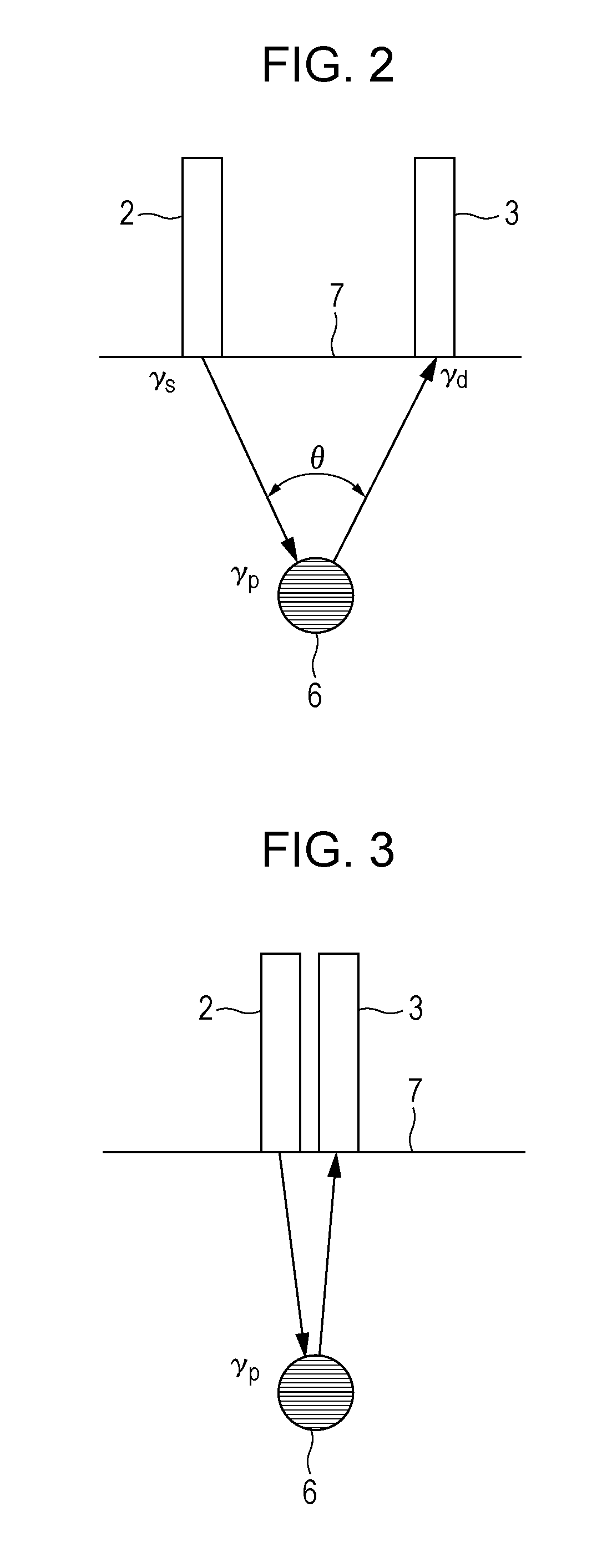Apparatus and method for processing biological information
a biological information and apparatus technology, applied in the field of apparatus and method for processing biological information, can solve the problem of difficult to accurately estimate the light intensity (z), and achieve the effect of accurate estimation, high accuracy estimation and high accuracy estimation
- Summary
- Abstract
- Description
- Claims
- Application Information
AI Technical Summary
Benefits of technology
Problems solved by technology
Method used
Image
Examples
second embodiment
[0088]A biological information method according to a second embodiment of the present invention will now be described. The configuration of an apparatus in this embodiment is the same as that of the apparatus in the first embodiment. FIG. 9 illustrates a flowchart of a measuring process in the present embodiment. In step S200, the PAT measurement is performed while the surface of one of the specimen fixing plates 4 is two-dimensionally scanned by the incidence optical fiber 2, thus obtaining PAT measurement values in all of sections in the specimen 7. At that time, it is preferable that measurement be performed at a plurality of wavelengths to obtain spectral information.
[0089]In step S201, image reconstruction is performed on the basis of signals obtained in step S201 using a well-known method disclosed in, for example, Non-patent Document 1, thus obtaining a distribution of sound pressures inside the specimen 7. At that time, the attenuation of an ultrasonic wave upon propagating ...
third embodiment
[0097]A biological information processing method according to a third embodiment of the present invention will now be described. The configuration of an apparatus in the present embodiment is the same as that in the first embodiment. In the first embodiment, the incidence optical fiber 2 and the detection optical fiber 3 are arranged so that their positions are regarded as substantially the same position relative to the probe region 6. In the present embodiment, the optical fibers are arranged at any distance therebetween. Typically, it is preferable to arrange the optical fibers at a distance of several centimeters. In the present embodiment, a method of calculating a light intensity in a local region using the AOT is different from that in the first embodiment.
[0098]Referring to FIG. 10, modulated-light measurement regions 6a in each of which an AOT signal along is acquired are arranged below the surface of the specimen 7 such that the respective regions 6a are located relative to...
fourth embodiment
[0111]A biological information processing method according to a fourth embodiment of the present invention will now be described. The configuration of an apparatus in the present embodiment is the same as that in the first embodiment. Prior to the AOT measurement or the PAT measurement, a pulsed ultrasonic wave is transmitted from the ultrasonic transducer 5 and an ultrasonic echo, serving as a reflected wave, is received by the ultrasonic transducer 5. The measurement is performed while the direction in which the pulsed ultrasonic wave is transmitted is changed relative to the specimen 7, thus obtaining structural data regarding the inside of the specimen 7. The data is stored into the memory 13.
[0112]In the arithmetic processing unit 11, the structural data regarding the inside of the specimen 7 obtained by the ultrasonic echo measurement is read out from the memory 13, the specimen 7 is segmented into sections using structural features, and structural information regarding the se...
PUM
| Property | Measurement | Unit |
|---|---|---|
| coherence length | aaaaa | aaaaa |
| wavelength band | aaaaa | aaaaa |
| light intensity | aaaaa | aaaaa |
Abstract
Description
Claims
Application Information
 Login to View More
Login to View More - R&D
- Intellectual Property
- Life Sciences
- Materials
- Tech Scout
- Unparalleled Data Quality
- Higher Quality Content
- 60% Fewer Hallucinations
Browse by: Latest US Patents, China's latest patents, Technical Efficacy Thesaurus, Application Domain, Technology Topic, Popular Technical Reports.
© 2025 PatSnap. All rights reserved.Legal|Privacy policy|Modern Slavery Act Transparency Statement|Sitemap|About US| Contact US: help@patsnap.com



